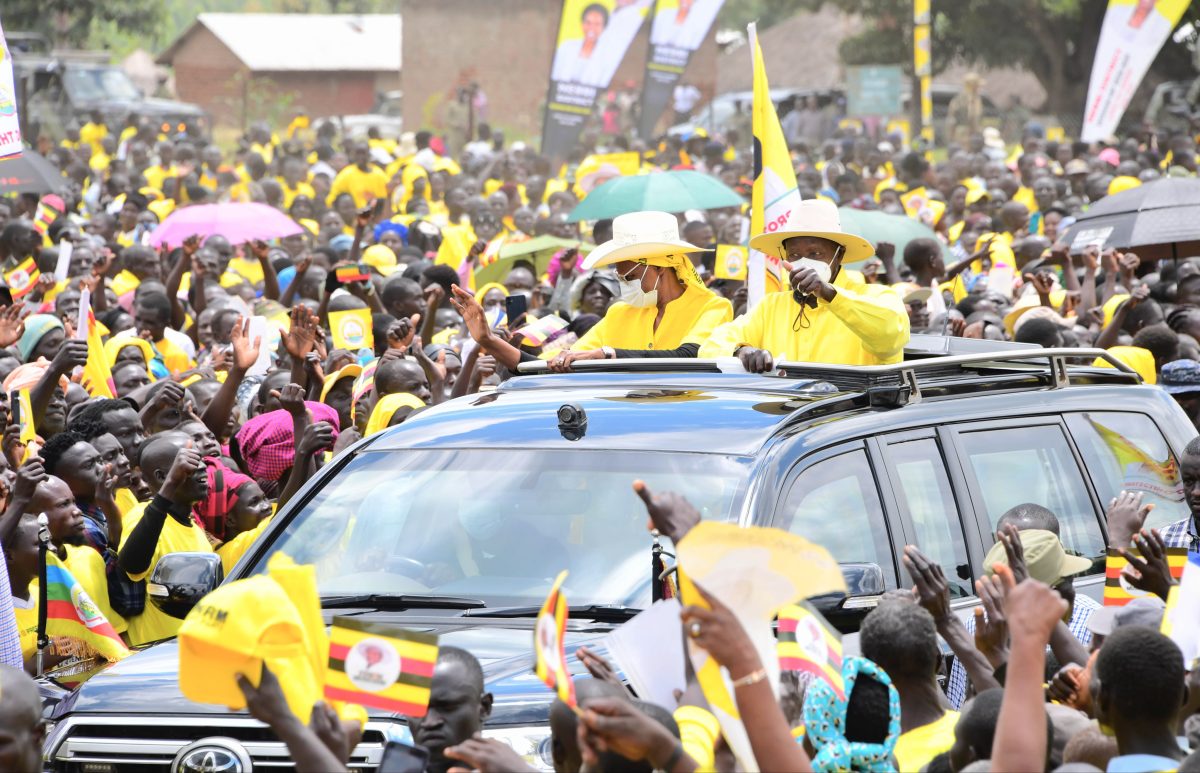President Yoweri Museveni has urged residents of Karamoja to focus on wealth creation initiatives rather than relying solely on government infrastructure development, particularly road tarmacking. Museveni’s remarks follow concerns raised by residents about the poor state of roads in the region, which have become impassable, with many calling on the government to tarmac them to ease transportation.
Currently, the only tarmac roads in Karamoja are the Moroto–Soroti highway via Napak District and the Moroto–Mbale road via Nakapiripirit to Muyembe. This leaves the northern part of the sub-region—covering Abim, Kotido, Kaabong, and Karenga districts—in worse condition. During the rainy season, several roads are frequently cut off and rendered impassable.
The most affected routes include the Moroto–Kotido and Soroti–Otuke–Abim–Kotido roads, which connect to Kaabong and Karenga. Recently, FDC presidential candidate Nathan Nandala Mafabi and his campaign team spent hours stuck in the mud on the Abim road while traveling to Soroti.
Speaking during his campaign rallies across the sub-region, President Museveni urged locals to prioritize wealth creation over the demand for tarmac roads, stressing that personal wealth is key to improving living standards. He encouraged the people to utilize government programs such as the Parish Development Model (PDM) and Emyooga to lift themselves out of poverty.
Museveni said that instead of waiting for road tarmacking, the Ministry of Works should focus on maintaining and improving murram roads to facilitate transport within the region. He noted that properly maintained murram roads would support economic activities even during the rainy season.
The President challenged the ministry to ensure that all major and district roads are made passable and questioned why travelers should have to spend nights on the roads when the government has the capacity to improve them. Museveni also wondered why locals were demanding tarmac roads while many had yet to take advantage of existing government programs aimed at fighting household poverty. He urged them to embrace socio-economic transformation initiatives to improve their livelihoods.
While pledging to eventually upgrade the region’s road network, Museveni emphasized that this should not stop people from engaging in productive economic activities. He revealed that plans are underway to tarmac the Moroto–Kaabong–Kidepo road and to construct an international airport to boost tourism in Karamoja.
In addition to his call for wealth creation, President Museveni pledged to improve social services across Karamoja. He promised to upgrade health facilities, construct a primary school in every parish, and a secondary school in every sub-county. Museveni also promised to enhance access to clean water by extending piped water to communities and constructing more dams to support livestock and irrigation, aimed at improving the living standards of the people.
He observed that water coverage remains a major challenge, particularly in Amudat and Nabilatuk districts, citing that Nabilatuk has 96 villages. Yet, only 44 have access to clean water—representing just 46 percent coverage. The President said that new dams are being built, while others are undergoing de-silting to provide water for both domestic and pastoral use.
On education, Museveni said his government plans to introduce compulsory free and boarding education for all children in Karamoja to promote learning and address security concerns. He revealed that the Cabinet will soon discuss the proposal for mandatory boarding schools in the sub-region. He also pledged to increase teacher recruitment to address staffing shortages in schools, especially at the secondary level.
President Museveni is expected to conclude his campaign trail in Karamoja today with a rally in Napak District before proceeding to Kapelebyong District in the Teso sub-region.
***URN***

